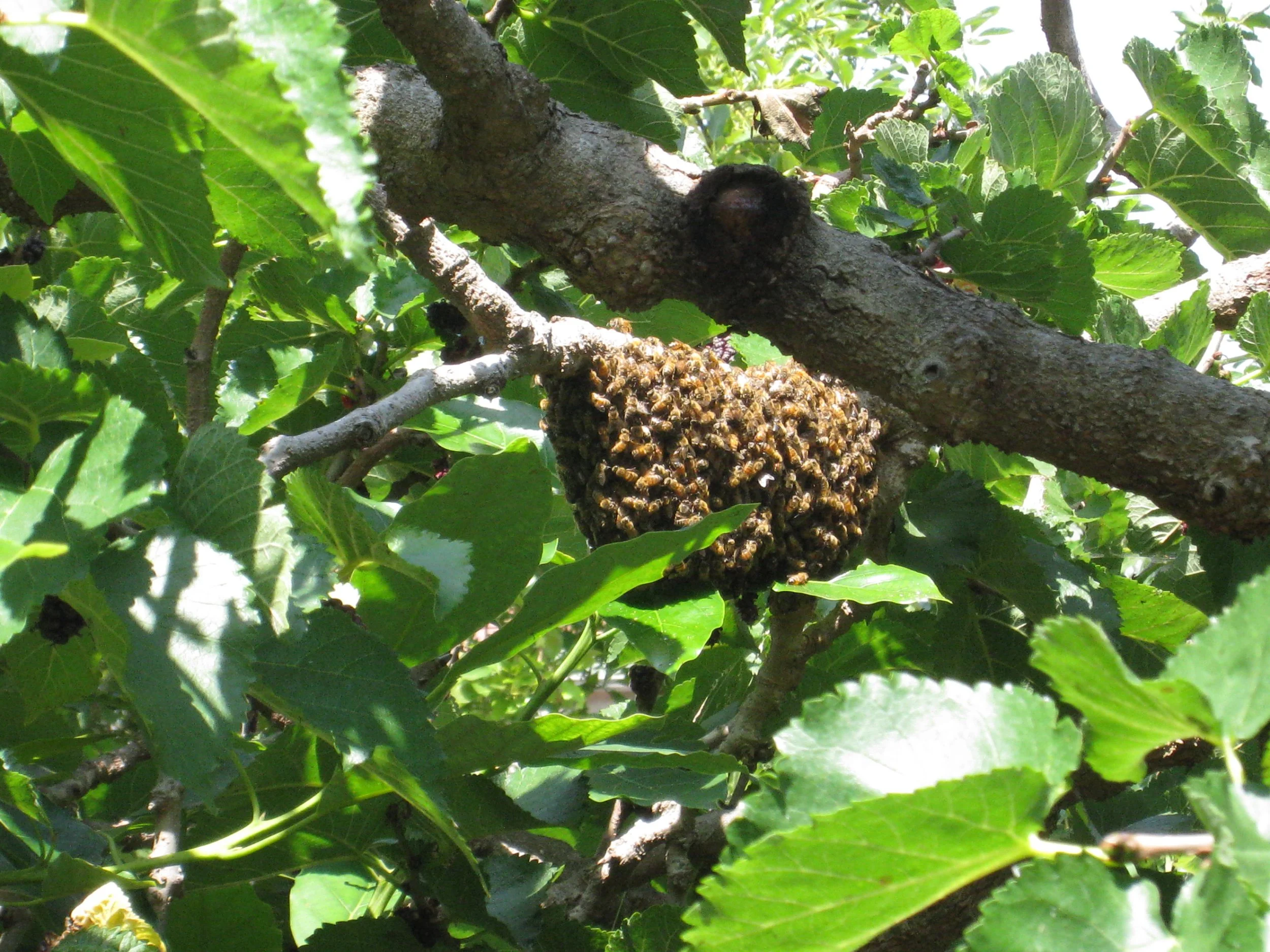The Wonderful World of Bees
Above: The bee hive in my mulberry tree
About 15 years ago, after planting fruit trees in my yard, I noticed the trees’ flowers looked healthy but I was getting very little fruit, even on some of my established avocado trees. I started to watch the blooms closely and noticed there were few to no bees on them or anywhere in my yard. I have never used herbicides or pesticides in my yard so I knew that wasn’t the problem.
I decided to make my yard a more bee-friendly place to visit by planting flowering native and non-native plants around my fruit trees. I chose a variety of plants so that I would have almost year-round flowering. (Living in Southern California allows me to have the luxury of flowers most of the year.)
I started to notice more bees in my yard and within four years a wild swarm of bees moved into my yard under a storage building. Now I not only have wild European bees, but also thousands of native bees including carpenter bees, mason bees, wasps (the small one with no stinger), bumble bees, and butterflies, to name a few.
This year two more swarms of wild European bees moved in. It might sound like a lot of bees, but with 1-1/2 acres of land, over 65 fruit trees, and hundreds of bushes, trees and vines there is plenty of room for them all. I provide them with a safe environment and in turn they pollinate my trees. And of course, all the honey they produce if for them to keep. I never take the bees honey.
If you are interested in getting a wild hive contact a bee rescue group in your area. Bee rescue groups remove unwanted hives from peoples’ yards safely and relocate them to a new home where they are wanted and appreciated. Never buy hives from commercial bee suppliers. The bees are factory farmed, and like other factory-farmed animals they experience unnatural living conditions leading to stress, sickness, and sometimes death.
Bees are wondrous creatures. I am happy I can provide a home for them, with all the nectar they need to survive and thrive. Bees rarely sting unless provoked, so there is really no need to fear them. They are also an important part of our eco-system.

